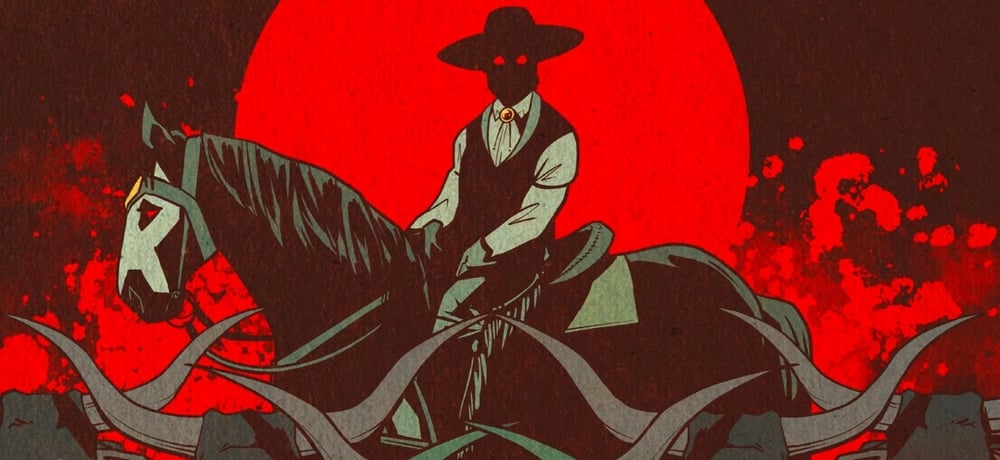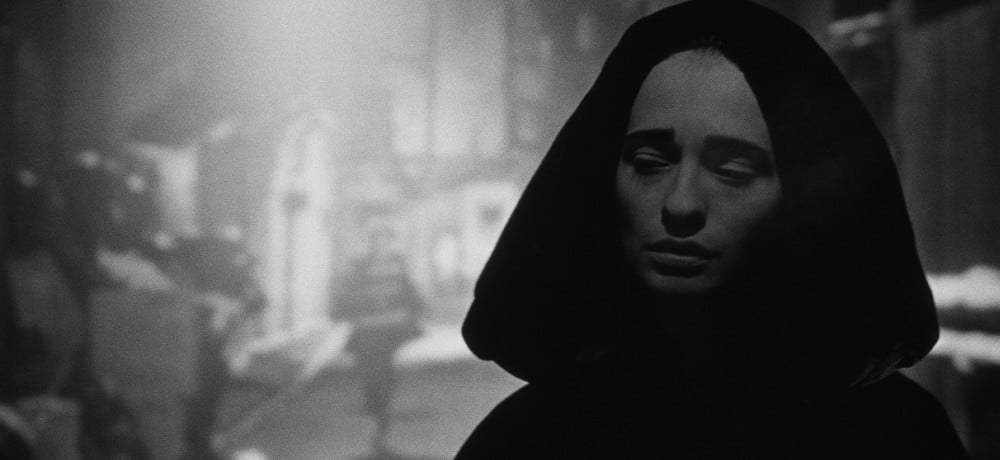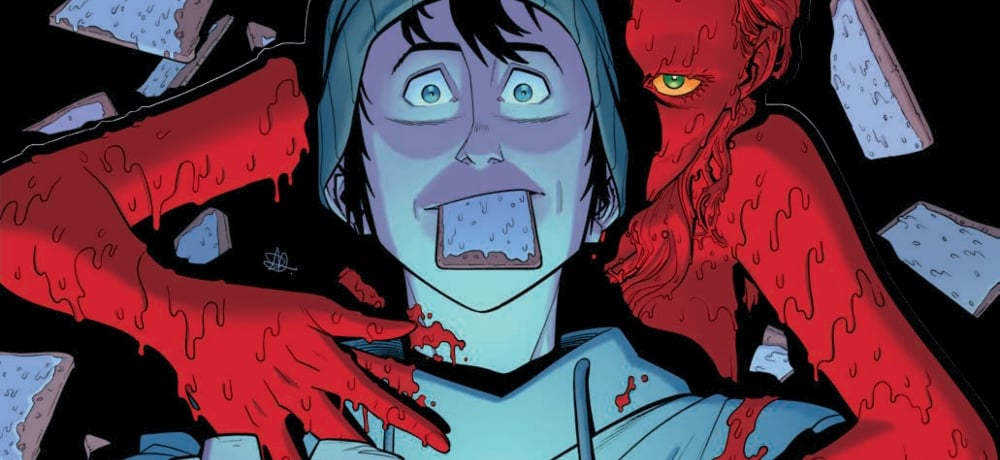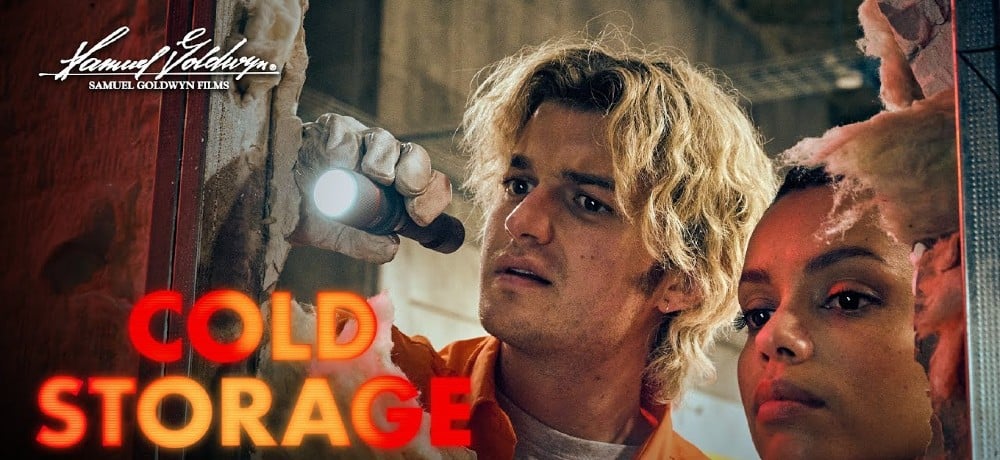





In a world crawling with vampiric creatures, Mister helps equalize the fight between the living and the undead. Nick Damici's memorable character returns for a new journey fueled by Martin's (Connor Paolo) desire for revenge in Stake Land II. With the sequel out now on digital platforms and hitting Blu-ray and DVD on February 14th from Dark Sky Films, Daily Dead had the pleasure of speaking with Damici about reprising the role of Mister and much more.
Read on for our discussion with Damici, in which he talks about his plans for a third Stake Land film and shares his thoughts on the Stake Land TV series that he had once been developing. He also talks about the response to Bushwick (a movie he co-wrote) following the film's Sundance screenings, what to expect in the upcoming season of Hap and Leonard, and an interesting conversation he once had with George A. Romero about social commentary in films.
Congratulations on returning as Mister in Stake Land II. It’s been really awesome to see that character come back. What has it been like to step back into those boots?
Nick Damici: It was a long time coming. I really love the character, I loved playing him the first time, so when the opportunity to do it again, I was like, "This would be kind of fun." I actually wore the same leather pants that I wore in the first one—I kept them. It was fun to revisit and put on the cowboy outfit again.
Had you been planning to do a sequel ever since the first Stake Land came out? Has this been percolating for a while?
Nick Damici: I always saw Stake Land as a trilogy in a sense. I’m planning on trying to do a third one, but we’ll see what happens with that. But I always saw Stake Land as a trilogy of Mister and Martin’s story in three different arcs with time between them, so in a way that it didn’t happen sooner is good, because Martin got a chance to grow up and that makes it a little more interesting.
Mister has changed since the first one. He’s a little less quick to kill and has a little more empathy. Is that something you wanted to translate this time around?
Nick Damici: Yeah, I always see these as somewhat Westerns, and Miter is the gunslinger, the vampire killer, and I think that’s an interesting thing. As we get older, we start to realize, “What am I doing?” And that’s part of what Mister is going through. Not that he won’t kill—I don’t think he revels in it like he did. As you get older you also start to lose your anger a bit, and in Stake Land II that’s where he’s at, whereas Martin is what he was in the first one, which is what we were aiming at. And he realizes that don’t get you anywhere. It’s like him trying to show Martin that this ain’t the way to go, kid.
In this one, too, we get to explore Mister’s backstory with the family element and running into his old war buddies.
Nick Damici: Yeah, there’s a rule we made in Stake Land that we can’t do history, we don’t talk about it, so it was interesting to introduce characters that could talk about it and spell it out a little bit. It was always a very sold-out thing in our minds—Jim Mickle and me in the first one—we knew all the backstories and they were pretty well thought-out, so there were definitely full stories of what had happened to these people before they got to Stake Land. So that was interesting to bring that back in and do it in a subtle way—I didn’t want to make it a big drama. Especially when characters are telling you a story about themselves, it just kills me. In a movie, I want to see it, I don’t want to hear it. But if somebody else is remarking on them, you get away with it, so that was kind of fun.
In this one, [director] Jim Mickle passed the torch to Dan Berk and Robert Olsen. What made those guys the right fit to continue what you and Jim started in the first one?
Nick Damici: They were brought in by Larry Fessenden. We were looking for directors. Jim obviously wasn’t going to step down and do something like this again. He had done Stake Land and the budget was not there. He would have wanted a much bigger budget, and I understand that and respect it. But he was an executive producer on this, so he was 100% behind it. He was involved—he read the script, he liked the story. And Dan and Bobby came in and Larry introduced me to them. They’re very smart, smart kids. They had made a film [Body], which was really good. I liked them, and basically we just decided, “let’s do it,” which sometimes I think is the right way to do it—you just see where it goes.
It wasn’t a picnic for any of us—them or me—a lot of differences of how this should be done and what we could do with the budget, so we banged heads a lot. But that’s part of making a movie. I don’t think you get anything good if you just accept everything the way it rolls out. You have to fight for what you believe in. They fought for what they believe in, I fought for what I believe in, and we ended up with Stake Land II, which is a really good movie. It’s a really good bridge movie for what I want to do with Stake Land, if we can get a third one. I think it serves that, and I’m really proud of what they did.
It was great to see you reunite with Connor [Paolo] in the sequel, and you guys have an awesome fight scene that seemed straight out of Thunderdome. What was it like to do that physical fight scene with him?
Nick Damici: Connor and me go back to Stake Land, so we have quite a history and we’ve become very close friends. Prepping for Stake Land, I worked at a gym at that time, I trained boxers, kickboxers, stuff like that, and Connor and me being actors, he lived in New York, and he’d come down to the gym and we’d train together and I taught him what I knew. So that became our thing, and so to get to fight him in this was really fun. Of course, budget-wise, we could do what we could do—we wanted a spectacle, but they cut us down to a very short fight, but it was still fun. He’s a terrific actor, and I’m hoping we get a Stake Land III and get to see these guys a few more years down the road.
Is there anything you can tease about the direction you’d like to take in that third movie?
Nick Damici: It would be very, very different than the first two. In Stake Land we end up in a kind of Western world, and I think by the third one we’re in the Middle Ages, where it’s going to be that kind of a tone. The characters are not going to dress the same, they’re not going to be the same people in a way. This one is gonna take place almost ten years later, is what I’m presuming. So we’re talking about 20 years into this apocalypse now, and that leaves it wide open. It’s not going to be populated with people, lockdown towns will not exist, they’re basically gone. It’s going to be a very different world, much more futile. My template at this point is I’m thinking in terms of samurai movies rather than Westerns. That’s kind of where it’s going, and of course I’m obviously being totally influenced by Trump Land, not that I want to be, but I am.
At one point there had been talk of a Stake Land TV series. Is that still in the works, or would you prefer to do the film instead?
Nick Damici: We don’t own the property of Stake Land. MPI owns the property, they produced the first movie and that’s the deal you make. They were generous enough to let us do a second one. I’m going to have to go back to them and beg them to do a third one—I don’t know what kind of budget we’ll end up with. A series was in the works. I’ve written six episodes. I’ve done all kinds of backstory work. Nobody seems to be interested in making it, as far as I know—if they are, I wish they’d call me. You’ve got The Walking Dead, you’ve got all these things out there, so I don’t know if there’s a place for it at this point. If it happened, I’d be very, very happy.
As far as the movies go, I’m going to complete that arc if I can, and then we’ll see. The [Stake Land] world will not go away. Whether Mister or Martin do, that’s a different thing, but the world of Stake Land is there to explore, and it is a pretty interesting place.
You mentioned the current landscape right now, and you have a very timely movie that you had a hand in writing, Bushwick, which recently premiered at Sundance. What has your reaction been so far to how people have responded to Bushwick?
Nick Damici: Yeah, the concept is just brilliant—"what if Texas invaded Bushwick?" is what attracted me to it in the first place. I think it’s doing very well, it seems to be getting a pretty good response. These guys [co-directors Cary Murnion and Jonathan Milottt] took a pretty ballsy move. They tried to do a movie in one take, basically, the way they shot it. From what I’ve seen, they’ve done a really good job of it, and the action works. I hope it does really well for them.
And I think it is timely. Originality is always a strange thing. There’s nothing original anymore. It’s all something based on something in some way—even if it’s not intentional. So that idea has been done. We’ve seen the Russians invade Alaska, but I think doing it on that inner-city scale, and their timing could not have been better, and I know, because I worked on it, and this was not happening then. Sometimes those things just happen.
I was having a discussion with George Romero about Night of the Living Dead at a festival and I said, “Wow, that was so great how you used all of the Civil Rights [Movement] and that whole thing that was happening in the ’60s.” And George looked at me and he said, “I had no idea. The shots of the guys with the dogs… it was in the air, I guess.” So it was kind of humbling and cool to hear from him that it wasn’t a planned thing.
I don’t think social commentary should be planned, you just have to be truthful. I’m not a politician and I’m not trying to change anybody’s mind. I’m just exploring what I see. And when movies tend to start to preach to me, I tend to shut them off, whether I agree with the message or not. I don’t think the job of art is to preach, I think it’s to ask questions and make people aware of differences and different ways of looking at things. That’s what I want to do, anyway. Whether I’m successful or not, that’s up to history.
I’m a huge Joe R. Lansdale fan, so I’m really excited that you’re involved with the writing of the Hap and Leonard series. Can we expect an adaptation of Mucho Mojo in this upcoming season?
Nick Damici: Yeah, we did the first book [Savage Season] last year, we’re doing the second book this year. We’re editing it right now, and what I’ve seen is terrific. James Purefoy and Michael Kenneth Williams are amazing in those characters. They’ve become Hap and Leonard to me. I still read Hap and Leonard, I was just looking at one of the books the other day, and I can’t see the characters now. When I first read the books, I had them in my head, and now James and Michael have become those characters to me, and that’s the most indelible thing about those books. I love the books, I love the stories, but he [Lansdale] created two characters and their relationship is just so unique and wonderful, that you just want to come back and hang out with them for a while and have fun.
Is there anything else on deck that you can tease?
Nick Damici: I’ve got a few things in the fire. I’m pitching a Russian detective series based off a series of books by Stuart Kaminsky that me and my manager have optioned, so we’ll see. We’re kicking that around, seeing if anybody bites. It’s a really good series. I love the books, so I think it would make a really good television show.
And outside of that right now I’m looking at a script a guy sent me who I worked on Stake Land II with from Canada. He has a terrific script called Bring Me the Head of Sam Peckinpah. I get so many scripts, and most scripts you get are just not that good. I’m sorry, but that’s the way it is. I got this one and I felt obligated, “Oh, I gotta read this script,” but when I saw the title of the script, I was like, “I am reading this one.” It’s terrific. We’re in the early stages. He doesn’t know exactly how we’re going to get it done, but we’re aiming on trying to do it, so we’ll see.